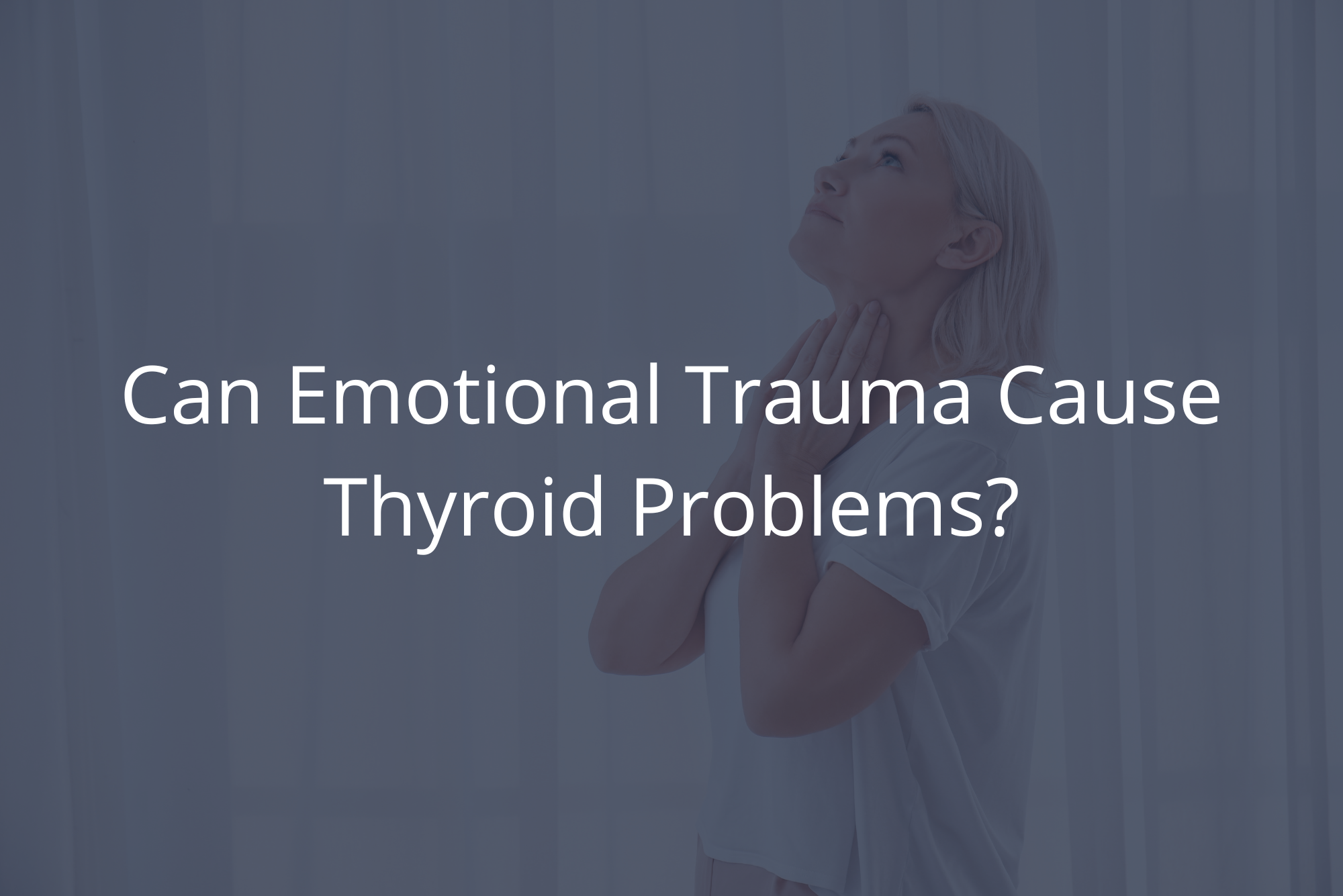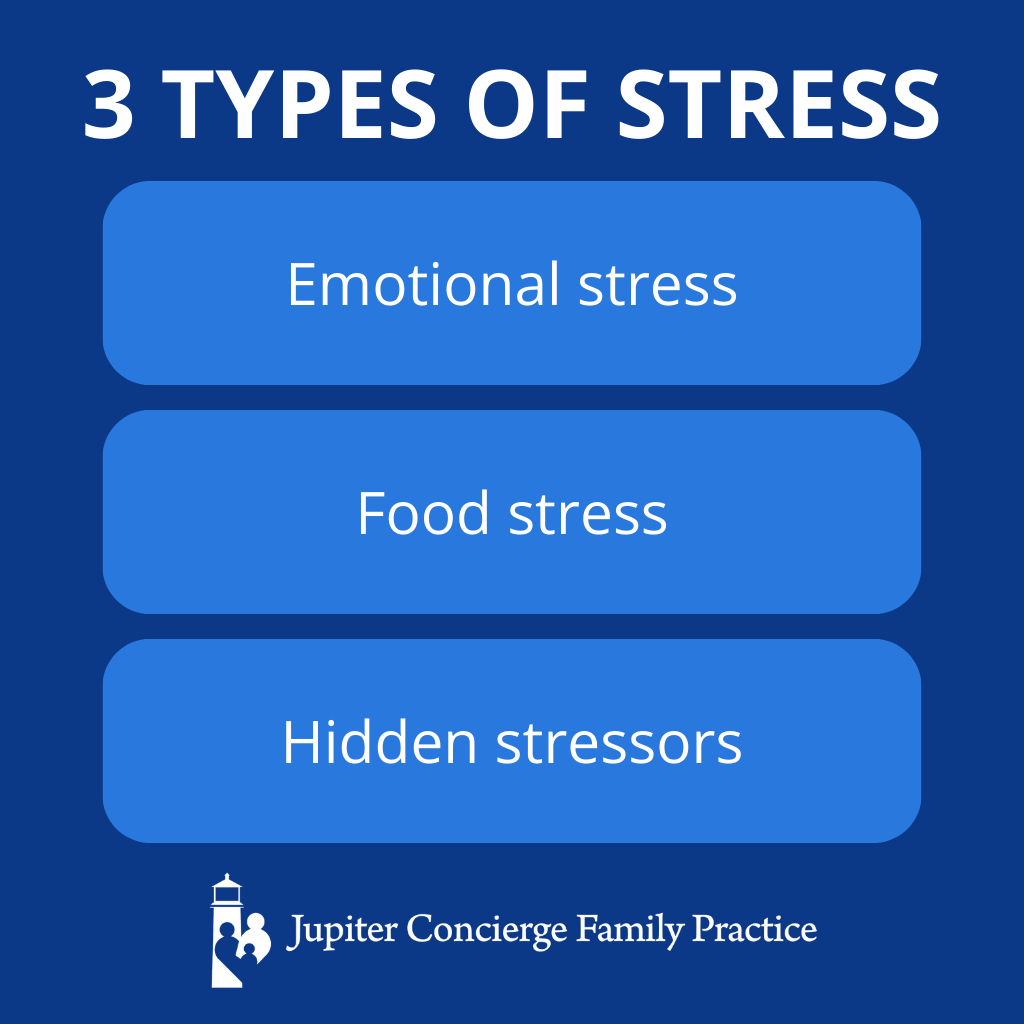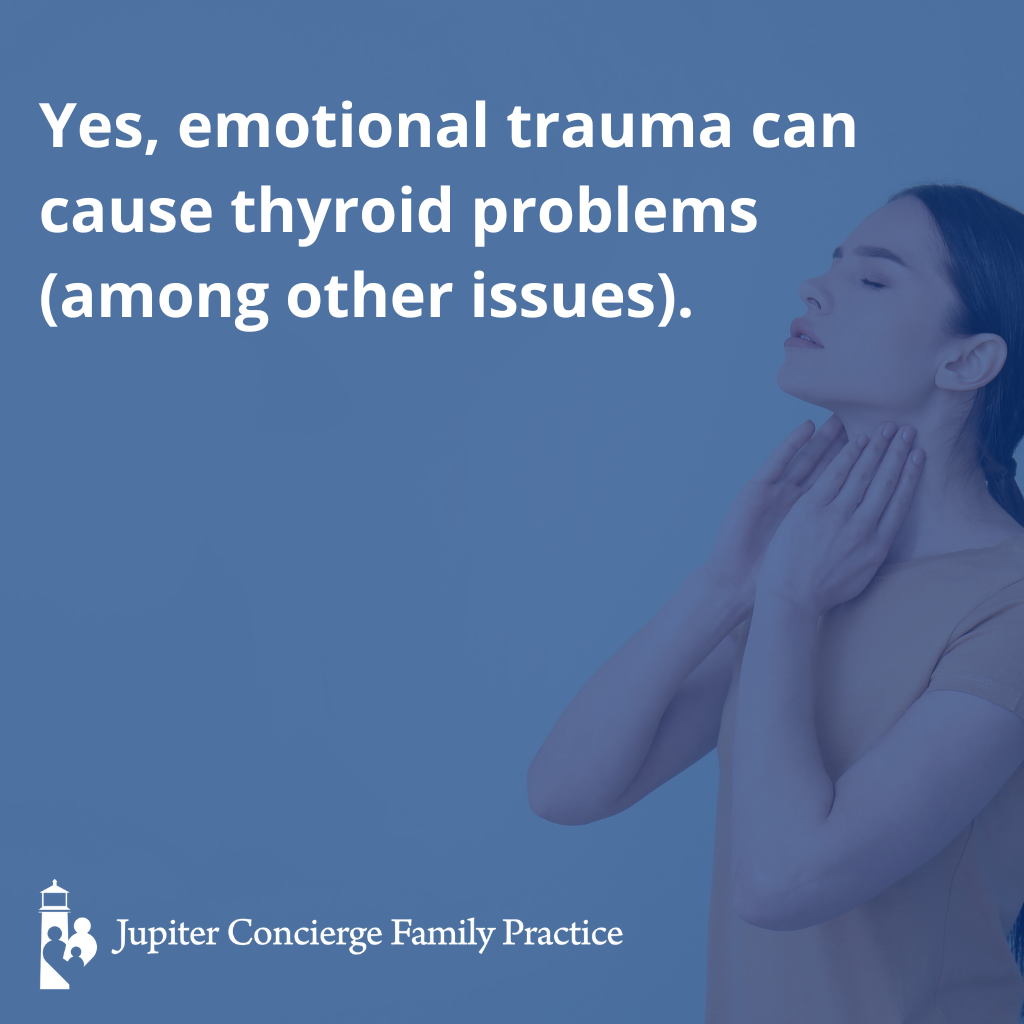
Before I answer the question this article asks — Can emotional trauma cause thyroid problems? — let’s explore trauma and stress.
Trauma is extreme and sustained stress. Trauma can be an ongoing state of living or a discrete event. But stress is one of those words we toss around without really seeing its full implications. We know we have it; we know it’s bad, but what is it?
Stress is a vast, far-reaching, yet simple concept. Let’s unpack what stress is so we can take a look at how it impacts our bodily systems.
How Does Stress Stress Us?
I’ve spoken previously about three types of stress: emotional, food, and hidden stress.
Emotional stress, also called spiritual stress, is often relationship-driven. This is the stress most of us think of — significant life changes, abuse, feeling overwhelmed, etc.
Food stress results when our bodies struggle to digest and metabolize an aspect of our diets. These are foods our body doesn’t react well to, such as processed foods and foods we’re sensitive to.
Hidden stressors are hits to our systems that we’re unaware of — diseases or conditions we don’t know we have. These can be cancers, genetic disorders, diabetes, bacterial overgrowth, parasitic infections, exposure to mold, Lyme disease, or post-COVID syndrome.
Stress and the Thyroid
Now that we’ve combed through the types of stress, let’s examine what stress does to our bodies.
Stress causes our adrenal glands to produce cortisol, widely known as the stress hormone. Among other things, like helping us escape danger, cortisol cues the brain to use glucose.
If the need for glucose isn’t satisfied by food, the body will start raiding the lining of the gut. The lining of the gut is rife with glucose; it’s also where 60–70% of our immune system resides.
When the body starts mining the gut for glucose, the immune system is triggered to respond. The immune system, in turn, goes to three key places: the sinuses, the thyroid, and the skin.
Can you see where this is going? The answer is yes; emotional trauma can cause thyroid problems (among other issues).
Healing the Thyroid
Thyroid problems occur on a spectrum and have various implications. In broad terms, there are typically two types of thyroid dysfunction:
- Overactive thyroid (hyperthyroidism)
- Underactive thyroid (hypothyroidism)
An overactive thyroid leads to problems like a racing heart, weight loss, thirst, and shakiness.
An underactive thyroid often presents as lethargy, weight gain, a slowed heart rate, and thinning hair.
That said, just because there are thyroid-related issues doesn’t mean there’s an innate thyroid problem. If you have symptoms that may indicate thyroid involvement, it’s important to identify and quantify the problem through testing.
A thyroid panel will reveal whether thyroid antibodies are present and show thyroid hormone levels, which are critical for determining appropriate treatment. Sometimes the thyroid needs initial treatment with medication — either curbing thyroid hormone production or replacing it.
Once the immediate problem is under control, you can then look for underlying causes — such as trauma or stressors. If you and your doctor can identify an underlying cause and treat it, you may be able to reduce your medication and eventually return to normal thyroid function.
Other times, however, the damage to the thyroid is too extensive. In these situations, ongoing conventional medication is necessary to keep thyroid levels healthy.
Emotional Trauma and Thyroid Disease: Conclusion
Functional medicine reminds us that we have a great deal of influence over our health and to always look for underlying causes.
Whether the problem is in the thyroid or elsewhere in the body, function often normalizes when you remove the underlying cause. The key is to uncover what lies beneath and to support yourself with the 4 Pillars of Health: sleep, exercise, nutrition, and stress elimination.


